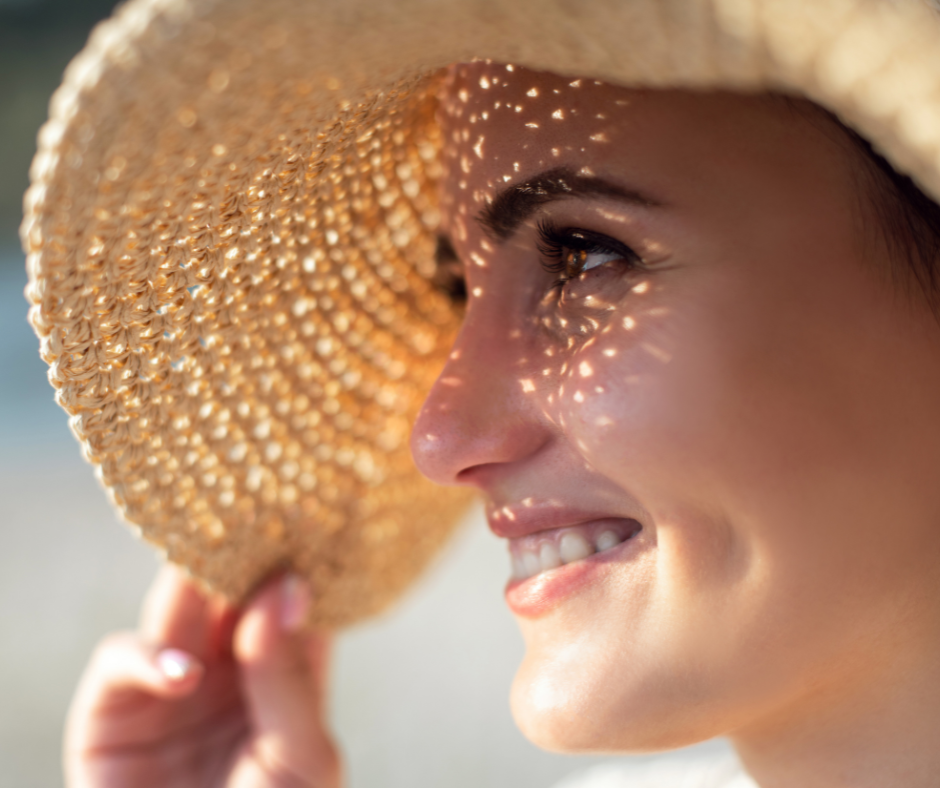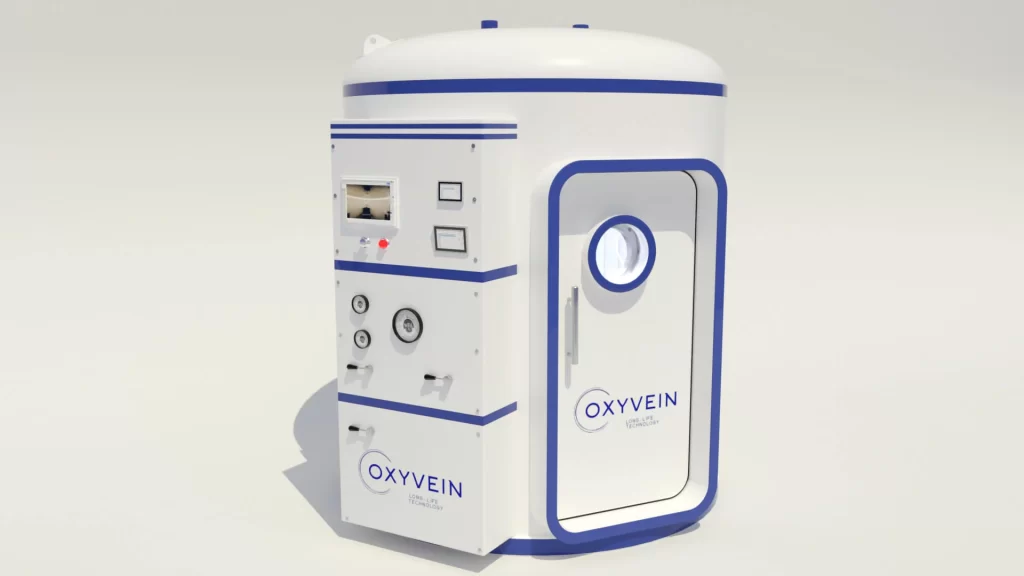
Our skin is the largest organ—and the first to show signs of aging. Fine lines, loss of elasticity, dryness, or uneven tone can begin to appear as early as in our 30s and become more pronounced over time. The good news is that we can significantly influence the skin aging process through proper care, protection, and the use of modern non-invasive methods.
With summer approaching, when the skin is more exposed to the sun, it is important to understand what causes the most damage and how we can protect and restore it—because prevention is the best ally for a youthful appearance.
The biggest enemy of youthful skin. UV rays damage collagen and elastin—the proteins that give skin firmness and elasticity. The result is wrinkles, pigmentation, and sagging.
Fine particles from smog, smoke, and dust penetrate pores, causing inflammation and oxidative stress. The skin loses its glow, the complexion becomes dull, and premature signs of aging appear over time.
Nicotine narrows blood vessels in the skin, reducing oxygen and nutrient supply. Smokers tend to have more pronounced wrinkles, especially around the lips and eyes, and a lifeless complexion.
Excess sugar, processed foods, and lack of antioxidants weaken the skin’s defense mechanisms. Sugar also binds to collagen in a process called glycation, making it brittle and fragile.
Chronic stress increases cortisol levels—a hormone that breaks down collagen and promotes inflammation. Lack of sleep slows cell regeneration and enhances dark circles under the eyes.
Without enough water internally and hydration externally, skin becomes dry, rough, and prone to cracking. Regular care is essential to maintain the skin’s barrier function.
Declining estrogen levels with age reduce collagen production and natural skin oils. The result is thinner, more sensitive, and sagging skin.
During summer months, skin is especially sensitive due to increased UV exposure, high temperatures, sweating, and saltwater. While sunlight offers benefits like vitamin D synthesis, excessive unprotected exposure accelerates skin aging and increases the risk of damage. Here are key steps everyone should include in their summer routine:
Sunscreen protects the skin from harmful UVB rays that cause burns and increase skin cancer risk. Apply sunscreen with at least SPF 30 at least 15 minutes before going outside and reapply every 2 hours, especially after swimming or sweating. Use enough on the face, neck, and décolleté—areas often exposed and neglected.
Physical protection like wide-brimmed hats and quality sunglasses further shield the face and eyes from UV radiation. This is especially important between 10 a.m. and 4 p.m. when the sun is strongest. Besides protecting health, these measures slow down wrinkle and spot formation around the eyes and forehead.
Heat and sun cause increased water evaporation from the skin, leading to dryness, tightness, and sensitivity. Drinking enough water (at least 2 liters daily) is crucial for skin elasticity and fresh appearance. Also, daily use of hydrating serums and creams with hyaluronic acid, glycerol, or aloe vera is recommended.
Although exfoliation helps remove dead cells, it can make the skin more sensitive to the sun and prone to irritation in summer. Use mild exfoliants (enzymatic or with AHA acids) once a week at night. Always apply moisturizing and soothing care after exfoliation.
Tanning is not a sign of health but a defense reaction to DNA damage in skin cells. Tanning beds emit UV rays that damage skin as much or even more intensely than natural sun. Instead, use quality self-tanning creams that provide a desired glow without risk.
Antioxidants like vitamins C, E, zinc, and beta-carotene neutralize free radicals produced by the sun in the skin. Foods rich in antioxidants (berries, tomatoes, leafy greens, nuts) help skin regenerate faster and look fresher. Supplements can be helpful if dietary intake is insufficient.
Today, there are many safe and effective treatments that stimulate the skin’s natural renewal processes. Here are the most common methods that both prevent and reduce signs of aging:
Uses the patient’s own blood to isolate platelet-rich plasma, which is then injected into the skin.
It stimulates new collagen formation, improving tone, texture, and elasticity. Ideal for the face, neck, and décolleté.
By inhaling pure oxygen in a hyperbaric chamber, the skin receives more oxygen than usual.
This promotes healing, regeneration, and inflammation reduction. After several treatments, the skin becomes more radiant and resilient.
Creates controlled micro-injuries that stimulate the skin’s self-repair.
Collagen production increases, and serum absorption improves—resulting in firmer, smoother skin.
Remove the surface layer of dead cells and stimulate new cell growth.
Properly selected peels can reduce hyperpigmentation, enlarged pores, and fine lines.
During summer, skin uses more nutrients due to sun exposure.
IV therapies provide high doses of vitamin C, glutathione, and minerals that renew skin from within and protect against oxidative stress.
Ozone is a powerful natural oxidant that in medical concentrations stimulates circulation, improves oxygen flow, and activates the skin’s natural repair mechanisms. Used in dermatological and anti-aging treatments to improve tone, elasticity, and complexion uniformity, it also has antibacterial and anti-inflammatory effects—especially useful for acne or sensitive skin. Treatment can be applied locally (ozonated oils, injections, or capsules) and is often combined with other regenerative methods for enhanced effect.
Cryotherapy uses cold temperatures to stimulate circulation, reduce inflammation, and accelerate skin regeneration. In aesthetics, it tightens skin and reduces redness. Facial treatments (e.g., “cryofacial”) provide a refreshing sensation and immediate skin firmness. Recommended in summer as it cools and soothes skin after sun exposure but should be avoided immediately after intense sun to prevent irritation of already sensitive skin.
This method uses specific light wavelengths to stimulate cellular metabolism, collagen synthesis, and reduce inflammation. Red light has anti-aging effects (renewing, tightening), blue light soothes acne and inflammation, and infrared penetrates deeper to aid tissue regeneration. LED therapies are completely non-invasive, painless, and safe for summer since they do not heat the skin or increase UV sensitivity.
Aging is a natural process—but how we age is largely under our control.
With proper protection, care, and occasional regenerative treatments, the skin can maintain a youthful appearance much longer.
The key is timely prevention—not waiting for aging signs to deepen but acting early with gentle and natural approaches.
Skin remembers everything: every unprotected sunny day, every sleepless week, and every bad habit. But the good news is—it also remembers every good choice.
Healthy nutrition, quality care, and regenerative methods that encourage self-renewal—these are the tools that work in our favor.
Note: This content is for informational purposes only and does not constitute medical advice or replace consultation with a qualified healthcare professional.
Contact phone
Mobile phone

The first and only medical device of its kind in Croatia – this chamber represents the pinnacle of efficiency and comfort in therapy. It is designed to support the treatment of complex health conditions, as well as to enhance the body’s resilience and endurance.
Starting next month, you can personally experience its benefits and recommend it to those who matter most to you.